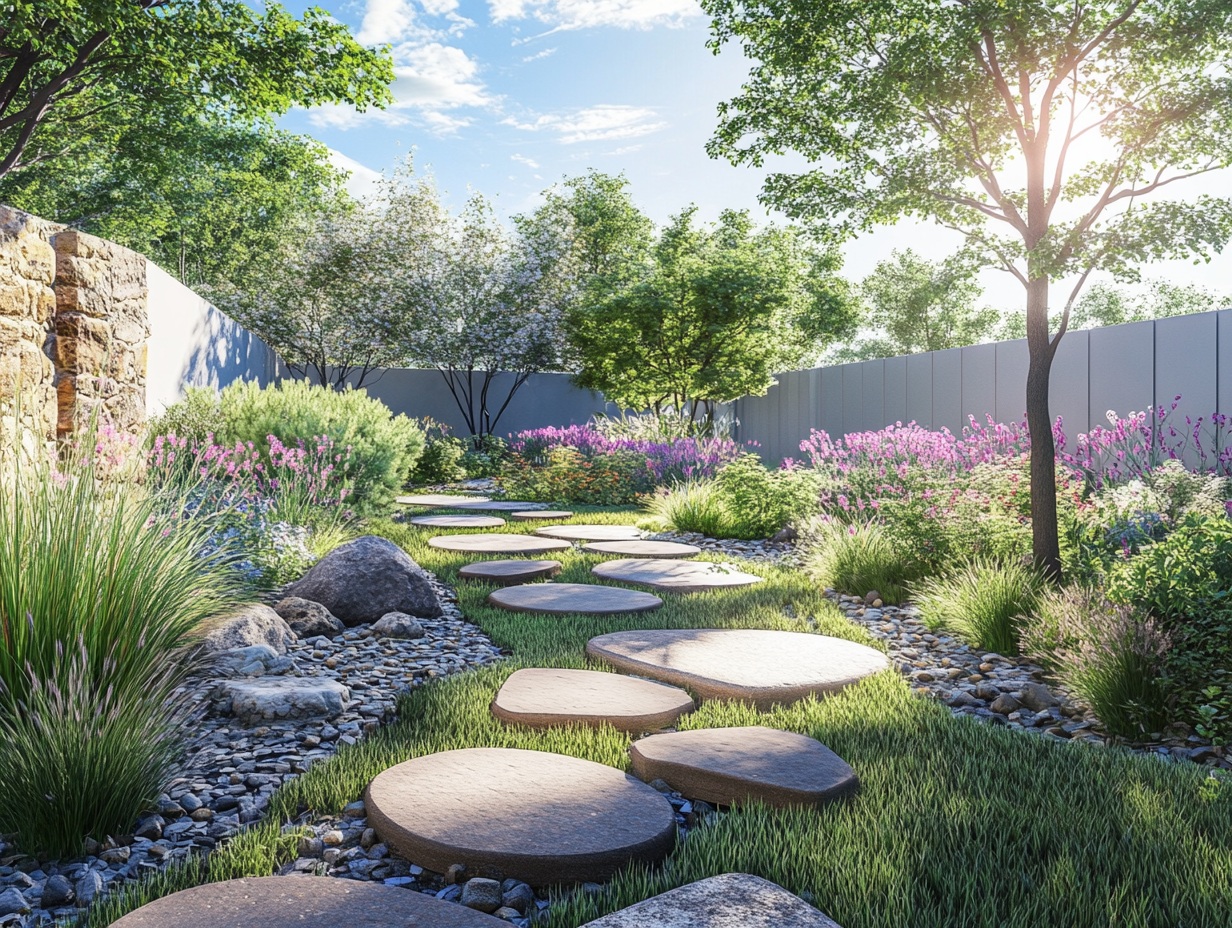In today’s world, beauty alone isn’t enough—your outdoor space should also reflect a commitment to sustainability. More than ever, homeowners are searching for ways to design environmentally responsible landscapes that conserve resources, minimize waste, and reduce long-term maintenance. Eco-friendly hardscaping is the perfect solution—where elegant design meets lasting environmental impact.
Sustainable hardscape design isn’t about sacrifice—it’s about making smarter choices. With the right materials and installation methods, your patios, walkways, retaining walls, and drainage systems can work with nature, not against it. This article explores the most effective ways to create a modern, environmentally conscious outdoor space without compromising on style, durability, or functionality.
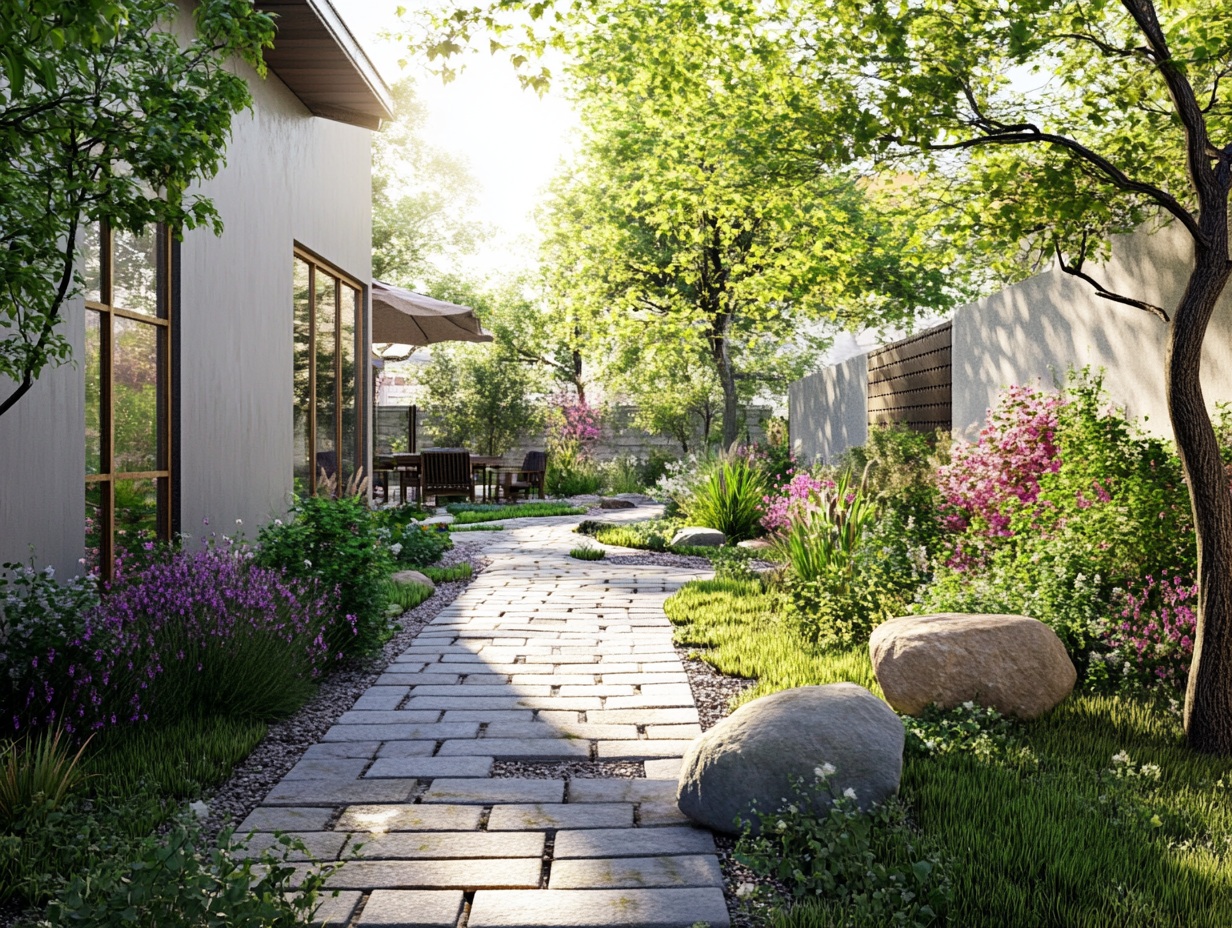
Why Sustainable Hardscaping Matters
Traditional hardscape features—like concrete slabs and non-permeable surfaces—often contribute to stormwater runoff, heat retention, and resource depletion. When improperly planned, they can disturb soil ecosystems, block natural water absorption, and contribute to erosion and pollution.
Sustainable hardscaping offers a better path forward. By integrating permeable materials, locally sourced products, and smart drainage solutions, homeowners can reduce their ecological footprint while enjoying low-maintenance, beautiful, and high-performing outdoor spaces.
Whether you’re building from scratch or upgrading an existing space, these principles of eco-conscious outdoor design will help you build smarter, greener, and more efficiently.
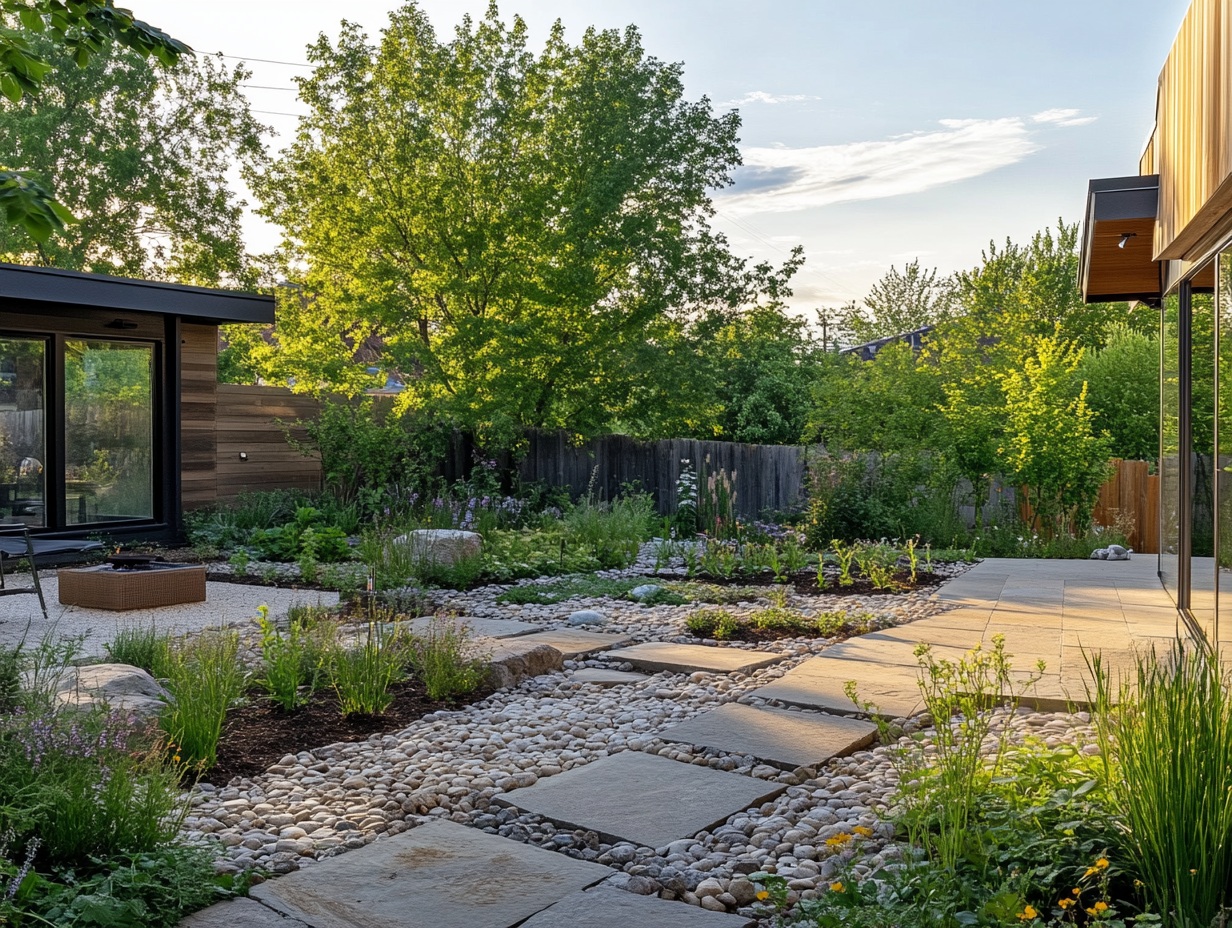
Use of Permeable Pavers and Water-Smart Surfaces
Permeable pavers are one of the most effective eco-friendly upgrades in modern hardscape design. Unlike traditional concrete or asphalt, these materials allow rainwater to flow between joints and seep back into the soil. This reduces stormwater runoff, prevents flooding, and helps replenish groundwater reserves.
Popular permeable materials include:
-
Porous concrete pavers
-
Open-jointed stone systems
-
Gravel-grid pavers
-
Natural flagstone with planted joints
These systems typically include a sub-base of crushed gravel that stores water during heavy rainfall, slowly releasing it into the surrounding soil. This reduces erosion, filters pollutants, and lowers stress on municipal drainage systems.
Another excellent water-smart surface is decomposed granite or compacted gravel. When stabilized properly, these surfaces are firm underfoot but still allow for water permeability. They’re especially useful for informal patios, garden paths, or secondary sitting areas.
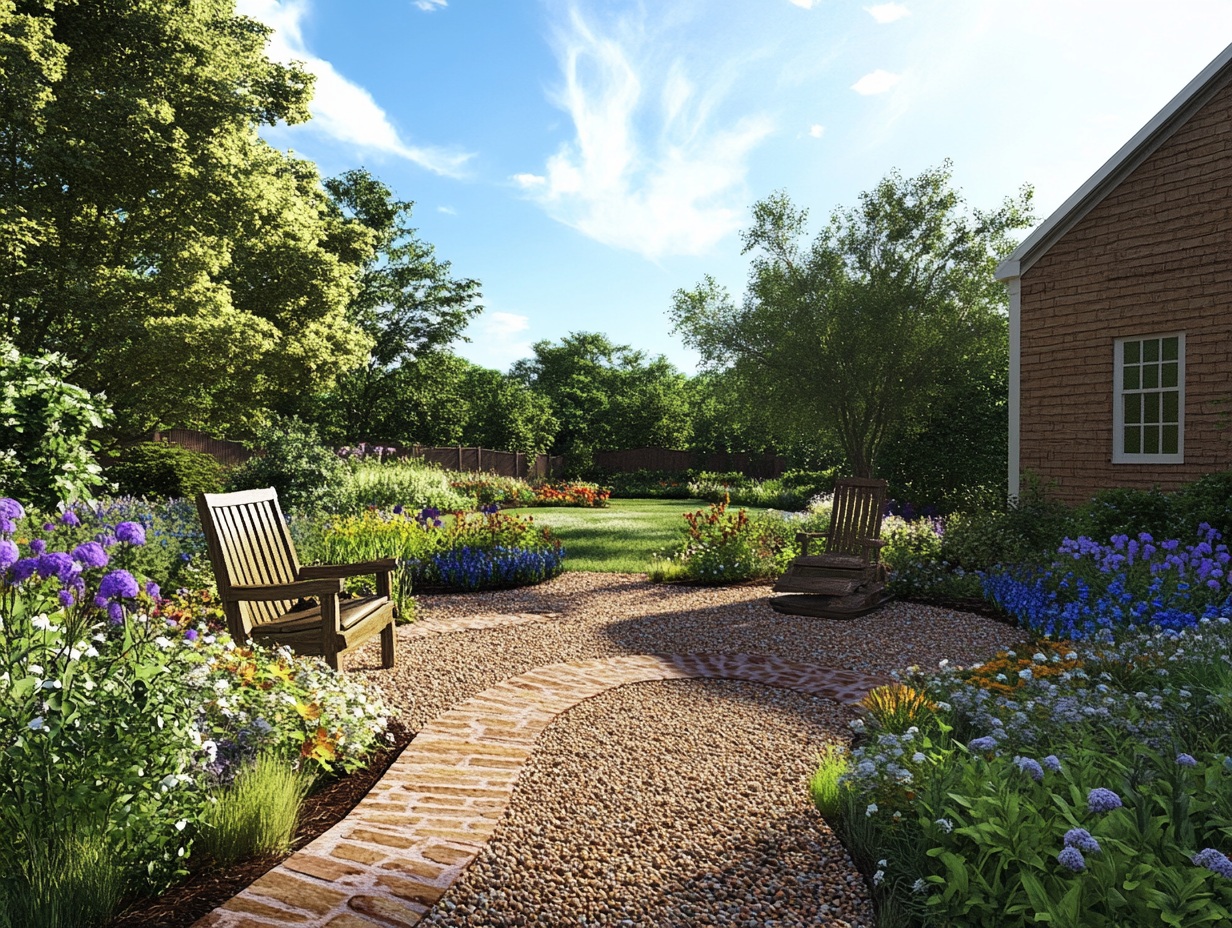
Locally Sourced and Recycled Materials
The distance your materials travel has a significant environmental impact. Choosing locally quarried stone, regional aggregates, or recycled hardscape products helps reduce transportation emissions and supports local economies.
Examples of sustainable material sourcing include:
-
Reclaimed brick or concrete for patios or retaining walls
-
Recycled rubber edging or composite decking made from post-consumer plastics
-
Natural stone harvested from nearby quarries, such as flagstone, limestone, or granite
Recycled concrete aggregate (RCA) is increasingly used in base materials or decorative fill, reducing the need for new resource extraction while maintaining structural performance.
When selecting any material, look for low-VOC sealers, stains, and adhesives, which emit fewer harmful chemicals and contribute to healthier air quality in your outdoor space.
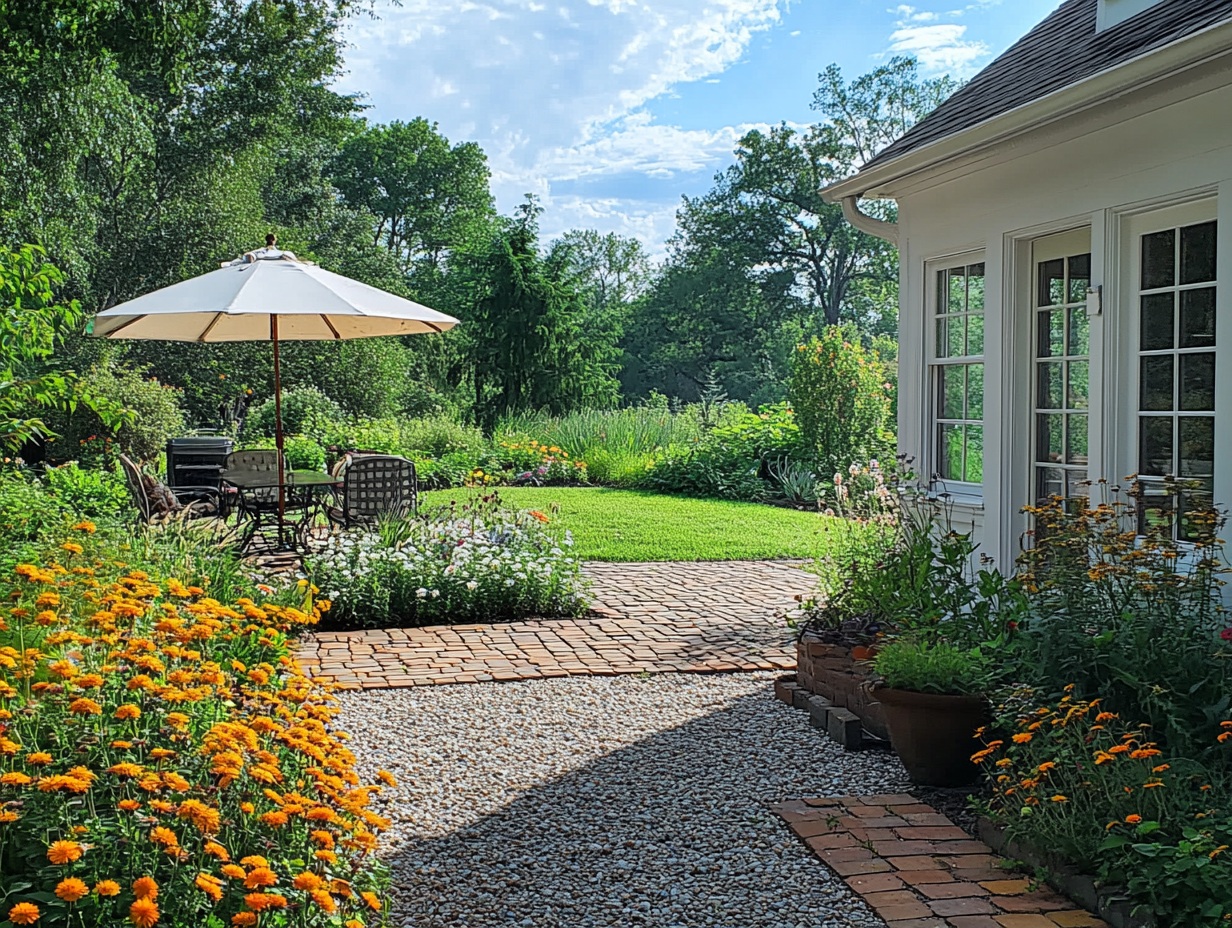
Integrating Native Plants and Green Infrastructure
Eco-friendly hardscaping goes hand in hand with sustainable landscaping. Incorporating native plants and drought-tolerant species reduces the need for chemical fertilizers, pesticides, and excessive irrigation.
Design features that combine both hardscape and softscape include:
-
Rain gardens, which are shallow depressions planted with water-loving native plants and fed by runoff from nearby hardscape surfaces
-
Bioswales, linear drainage channels that use vegetation and permeable media to slow and filter water
-
Green buffer zones integrated along patios, walkways, and driveways to absorb water and provide habitat for pollinators
Strategically placed green zones not only cool the space visually and physically, but they also add texture and biodiversity to your yard.
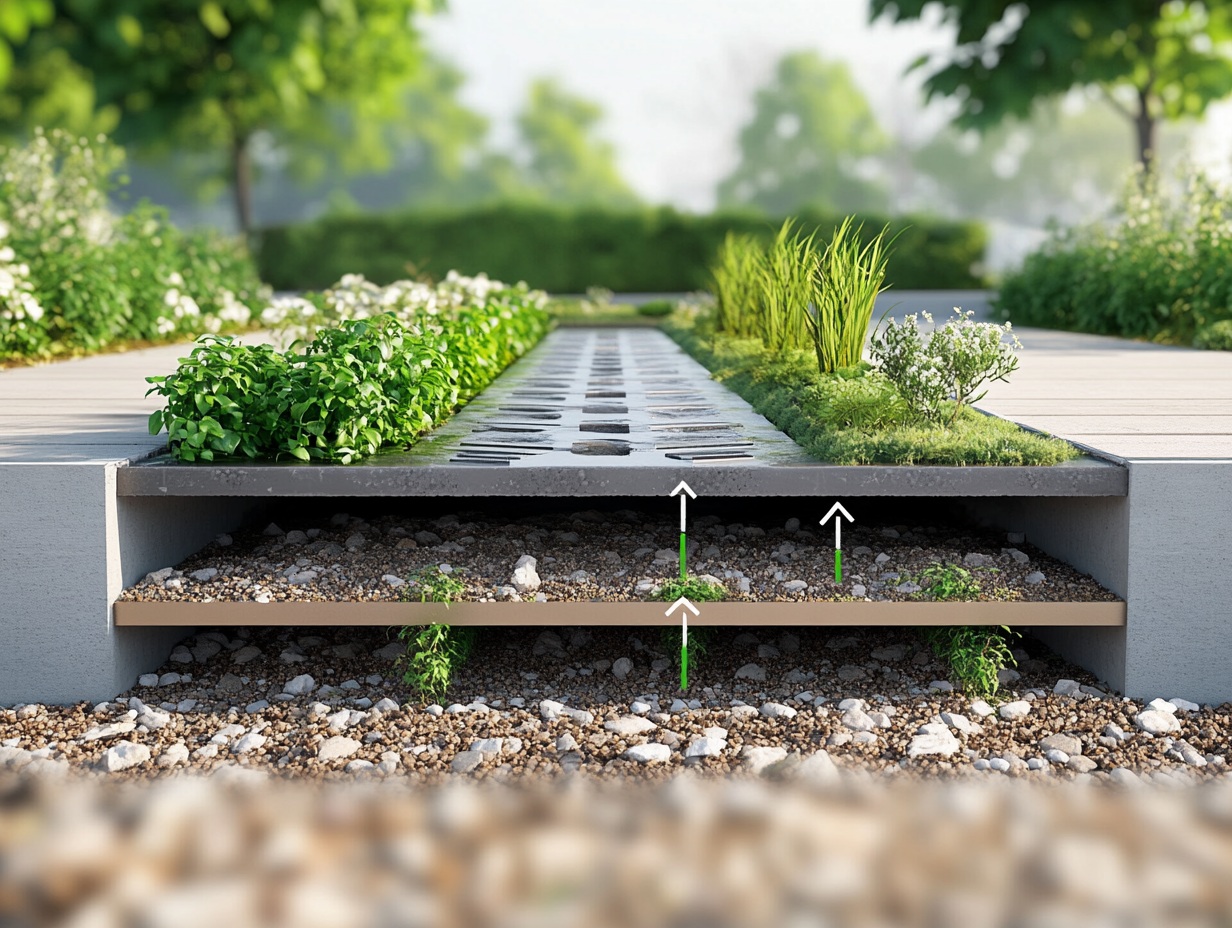
Designing with Longevity and Low Maintenance in Mind
One of the most eco-friendly choices you can make is designing for durability. A hardscape feature that lasts 30 years is far more sustainable than one that needs replacement after 5. Choose materials known for their resilience, such as natural stone, interlocking concrete pavers, or stabilized gravel.
Incorporate modular systems that allow for individual repair rather than full replacement. Modular paver systems, for example, can be lifted and reset rather than torn out and reinstalled.
Reduce maintenance and energy use by avoiding designs that require frequent watering, pressure washing, sealing, or trimming. Use solar-powered landscape lighting, opt for shade-producing features that reduce the urban heat island effect, and choose finishes that resist weathering without chemical treatments.
Good design reduces waste, saves water, and requires less energy over time—all hallmarks of a sustainable landscape.
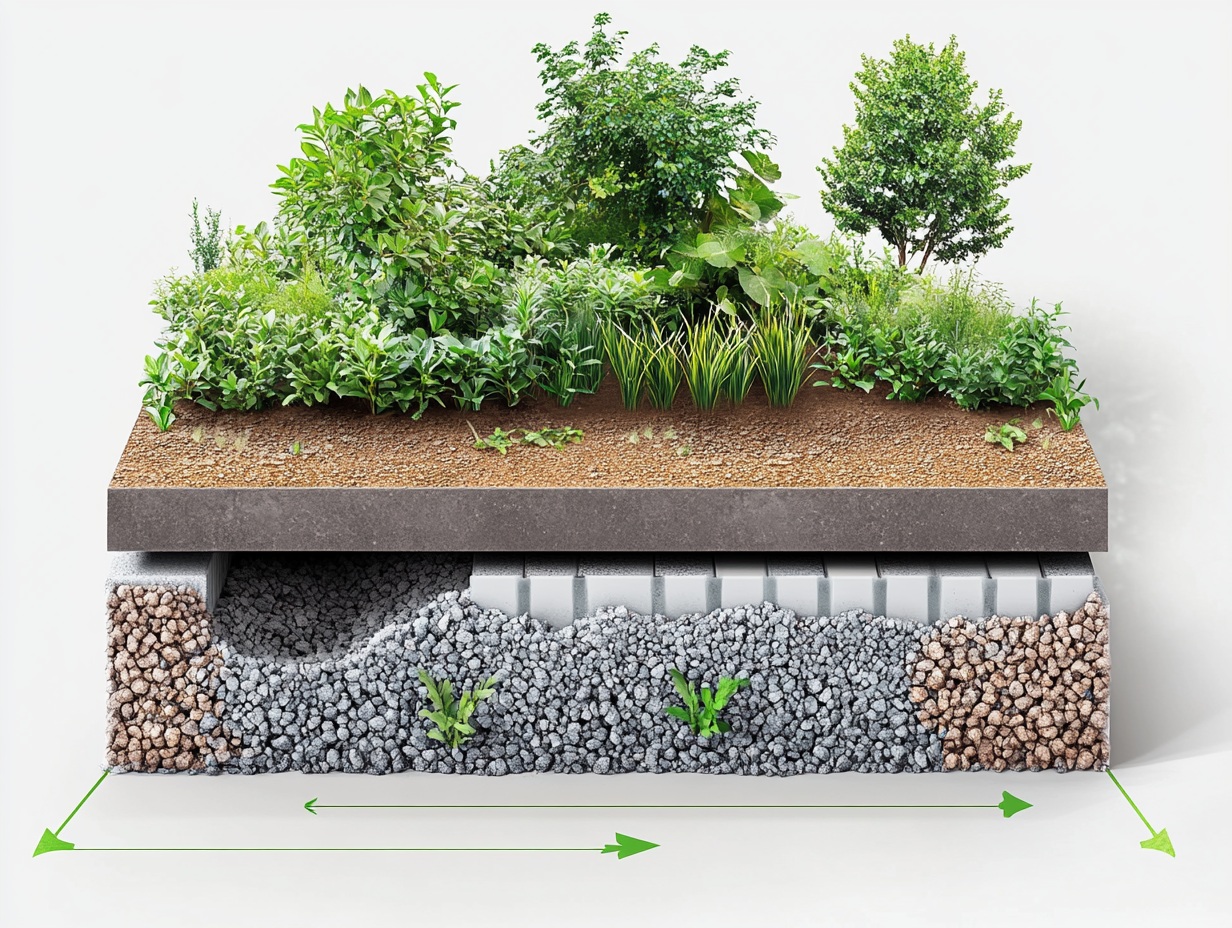
Sustainability Can Be Stylish
Eco-friendly hardscaping isn’t a trend—it’s the future of outdoor living. Homeowners today want spaces that are beautiful, functional, and environmentally responsible. From permeable pavers and recycled materials to native plants and green infrastructure, modern hardscape design allows you to create a lasting impression while protecting the land you live on.
At Precision Hardscape & Construction, we specialize in building sustainable outdoor environments that blend performance, beauty, and integrity. Whether you’re interested in low-impact patios, smart drainage systems, or environmentally responsible materials, our team will help you design and install solutions that are good for your property—and the planet.
Take the next step toward sustainable outdoor living. Contact us online or call (843) 222-5377 to schedule a consultation. Together, let’s create a space that’s as smart and sustainable as it is stunning.

